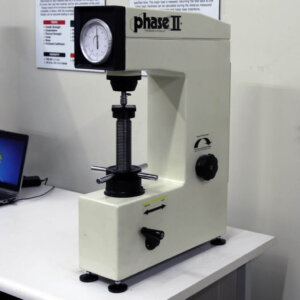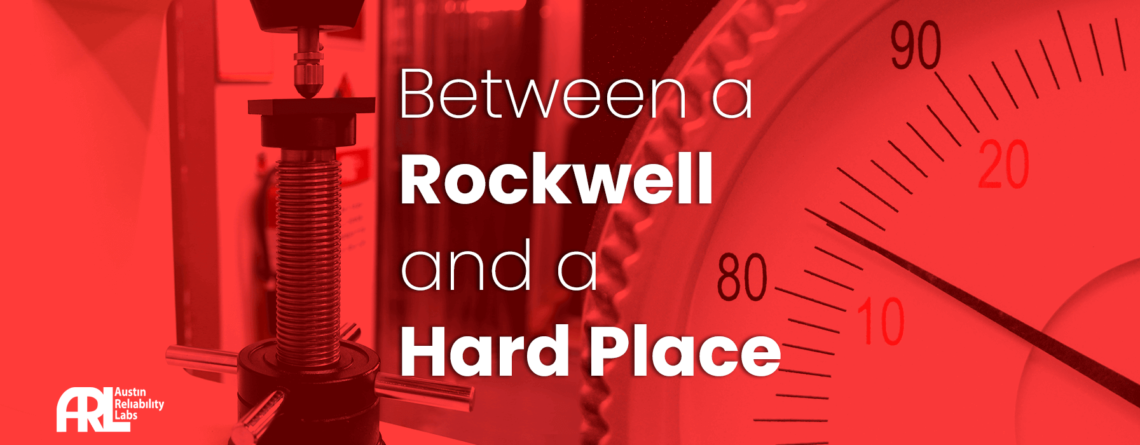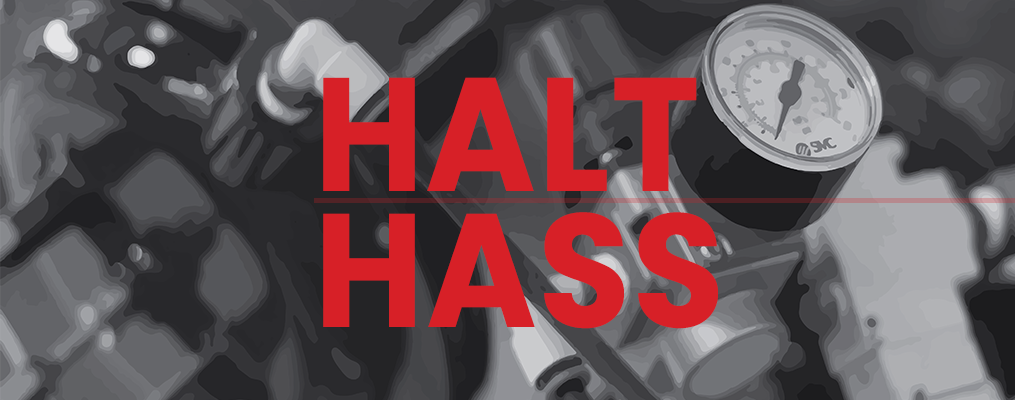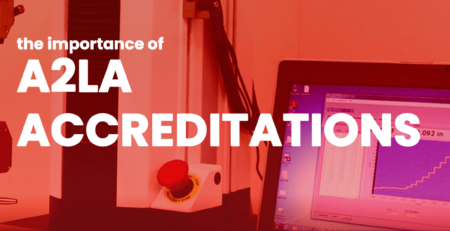Between a Rockwell and a Hard Place: The State of Hardness Testing
Amit Pal2025-03-05T08:14:41-06:00Given that the Rockwell hardness tester recently celebrated its 100th anniversary, we checked in with our team to chat about both the present and future of hardness testing.
As a brief recap before jumping in, hardness is a material’s resistance to indentation. The Rockwell hardness test method measures the permanent depth of an indentation created by a load applied to a material. Depending on the test material, hardness testing utilizes different indenters, with diamond indenters used for harder metals and ball indenters used for softer materials.

Phase II+ Rockwell Hardness Tester
WHERE ARE WE NOW?
Despite manufacturing evolving significantly since the Rockwell test first came out, many applications are still best served by this form of testing. This speaks to the beauty in the test’s simplicity, accuracy, and repeatability.
Part of the continued relevance of hardness testing is this golden age we’re living in for materials science and product design. We’ve touched on it before, but additive manufacturing has drastically reshaped the engineering process, and at the same time opened a lot of questions about how different materials and printing methods perform. Having the benefit of a known quantity like hardness testing allows clients to take advantage of all the possibilities that 3D printing provides with confidence. This also goes for the strides aerospace companies are making in the development of different alloys.
There is also an increasing demand in both the variety and quality of consumer products, which has led to both an increase in the testing of said products and also the packaging required for them. We’re also seeing products whose components are produced in a supply chain that stretches the world over, increasing the need to check for uniformity.
Austin Reliability Labs stands ready to help you navigate the changing landscape of reliability testing, either through tried and true methods, custom tests, or our larger network of labs.
WHERE ARE WE GOING?
The desire for accuracy and repeatability, which is what made the Rockwell test popular in the first place, is also what will lead to the eventual obsolescence of the test. While we’re not there yet, many predict the future of hardness testing lies in automation. Ultimately what we’d like to see is more software-controlled systems that can run independently from an operator, while providing improved repeatability.
There’s also been an increase in production methods that need a higher level of detail than a traditional Rockwell test can provide. The advancements being made in both the optics industry and in the developments of different coatings for many applications require the reliability testing industry to rethink our methods for testing these. Ultimately, the vast majority of products in traditional fields can still be adequately served by Rockwell hardness testing.
HOW CAN ARL HELP?
As always, Austin Reliability Labs stands ready to help you navigate the changing landscape of reliability testing, either through tried and true methods, custom tests, or our larger network of labs. For more information, reach out to us today!






